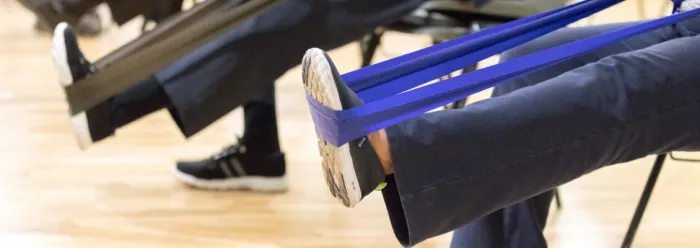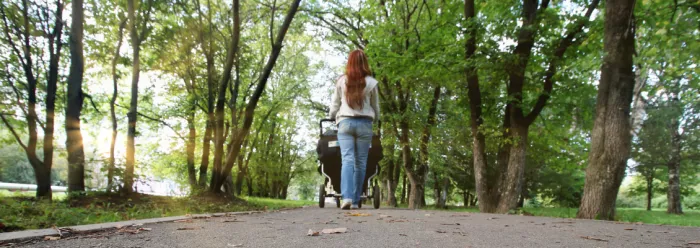Last week, we marked this significant milestone, reflecting on the progress since our five-year funding began in October 2019. Over the past five years, we have conducted projects that have truly made a difference in healthcare delivery and outcomes.
This year has been particularly significant, showcasing our achievements and the strong partnerships we have developed to advance health and care in our region.
In 2023, we were pleased to secure an extension of our five-year funding, extending this phase of NIHR ARC East Midlands through March 2026.
Professor Kamlesh Khunti, Director of NIHR ARC East Midlands, said: “Celebrating five years of NIHR ARC East Midlands is a tremendous milestone, reflecting the hard work and dedication of our teams in delivering impactful research that makes a difference to people's lives.
“As we enter our 18-month extension period, we remain focused on implementing the outcomes of our projects and maximising their impact on healthcare.”
He added: “This extension provides us with a unique opportunity to deepen our commitment to transforming health and care across our region, while we eagerly await to find out our next steps.”
In celebration of our five-year journey, we are excited to spotlight five transformative projects that demonstrate our commitment to improving health outcomes and enhancing care within our communities.
Making ADHD diagnosis easier

The Focus ADHD Programme uses the QbTest to assist clinicians in diagnosing Attention Deficit Hyperactivity Disorder (ADHD) quicker. This tool measures attention, impulsivity and activity levels, cutting the time needed for a diagnosis.
With more than 71,000 patients benefiting from the programme, it streamlines the process and eases pressure on healthcare services. This programme also saves the NHS money while improving outcomes for patients and their families. By enhancing the way ADHD is diagnosed, the programme helps tackle the challenges people face in getting the right care. Adopted nationally by Health Innovation Network, QbTest is recommended by NICE.
Empowering older adults through exercise

The Falls Management Exercise (FaME) Programme aims to help older adults improve their strength and balance and reduce the risk of falls. The programme has shown significant success in lowering fall rates and saving the NHS money.
By offering tailored exercise routines that focus on strength and balance, FaME empowers older adults to maintain their independence and improve their quality of life. The programme also encourages social connections among participants, creating a supportive community. Regular physical activity leads to better health outcomes, making FaME a crucial resource for older adults. By prioritising fall prevention, the programme helps participants lead active and healthy lives.
Supporting children with brain injuries

Each year, around 40,000 children sustain acquired brain or neurological injuries. While rehabilitation can significantly enhance outcomes and quality of life, many children lose access to care after acute treatment. The Children’s Neurorehabilitation service (BRILL Team) at Nottingham Children’s Hospital addresses this gap by providing intensive neurorehabilitation, early supported discharge and ongoing support for children with brain and spinal injuries.
An evaluation by Rachel Keetley, followed by her ARC East Midlands, University of Nottingham and Health Education England East Midlands funded PhD fellowship, highlighted the long-term rehabilitation needs of these patients. Key developments include increased national awareness of children’s unique needs and the development of the regional specialist paediatric acquired brain injury clinic to include multi-disciplinary assessment and follow up.
Helping women after gestational diabetes

The Babysteps Programme is a user-friendly web-app designed to support women with a history of gestational diabetes (GDM) in lowering their risk of developing type 2 diabetes. This initiative addresses gaps in education and care as the first-of-its-kind designed specifically for women with GDM history.
In a randomised controlled trial, 293 women participated, with 77 per cent completing it. Participants reported reduced anxiety, improved quality of life and increased confidence in exercising. The programme was also found to be highly cost effective.
With 457 registered users, the programme empowers women in managing their health after pregnancy and reducing their future risk of developing type 2 diabetes – an outcome for which they are 10 times more at risk following a GDM diagnosis in their recent pregnancy.
Reducing falls in care homes

The Action Falls Programme aims to reduce falls in care homes, which are a major cause of hospital visits for older adults. The programme has successfully reduced fall rates by 43 per cent, making care homes safer for residents.
By training and providing resources to care staff, Action Falls helps them implement effective fall prevention strategies. This initiative addresses the need for better safety measures in care settings, where residents are at higher risk of falling. By promoting proactive care, the programme not only reduces falls but also improves residents' quality of life. Action Falls serves as a model for other care homes across the UK, showing that focused efforts can lead to safer environments.
